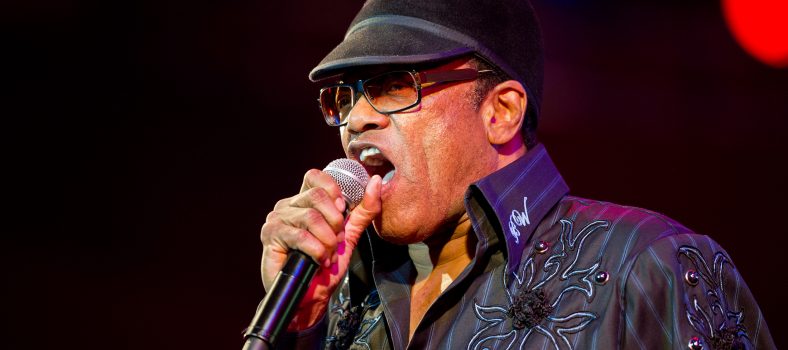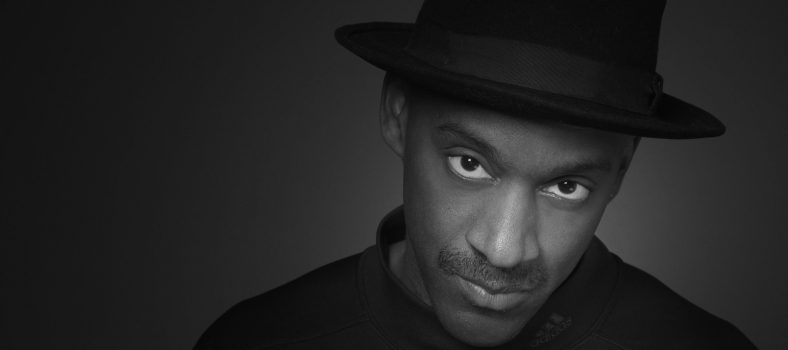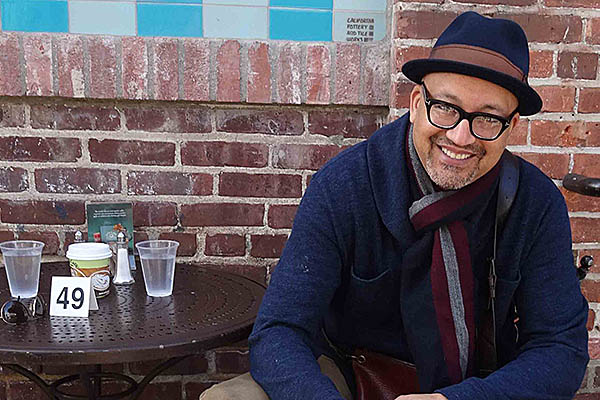
Situating Michael Stradford is no easy task. To some, he is the prognosticating program director that injected life into The Beat. To Quincy Jones, he is the fresh-faced A&R with an acumen for musical recognition. Folks may know him as the leader of a digital movement, piloting his very own distribution studio. Michael Stradford is a whole lot of things rolled into one. He is the unbridled polymath who has been navigating the entertainment scene for over two decades.
Recently, iRock Jazz sat down with Michael Stradford to discuss his whirlwind career in entertainment and what he is working on currently.
iRockJazz: How did you first get involved with The Beat?
Michael Stradford: The Beat had been on a few months before I got there, but it was automatized. They were looking for program directors and I was the only one that didn’t apply. I guess my name came up quite a bit. They reached out to me and I went out there and met with them and talked it through. It kind of went live once I got there. Then we brought in jocks and started doing promotions and the painted billboard campaigns with Luther and Anita and Bell Biv Devoe. That was all under my time there.
iRJ: With the change of formats and competition online, how do you see radio today in comparison to the past?
MS: It’s really difficult for me to answer with much credibility because I don’t listen to radio. The only time I listen to radio is if I’m in a rental car. I’m generally listening to podcasts, audiobooks, or my own playlist from my iPod. This is coming from a guy that’s just about to be 55 years old. So, if that’s how I’m getting audio entertainment, it stands to reason that younger kids really have radio far down the list as far as their priorities. I think radio is always going to be around, but I think we’ve seen the glory days. I don’t think those are coming back. Now, radio is so generalized there doesn’t seem to be any such thing. When I was coming up in radio, a station in Atlanta didn’t sound anything like a station in Detroit, which didn’t sound anything like a station in LA, which didn’t sound anything like a station in New York. But now with syndicated radio programs and the group program directors and the idea of using research as a Bible instead of a tool–and I’m speaking largely about black radio– to me a lot of the soul has been taken out of what made black radio special. Right now, given the fact the environment is so competitive to attract the attention from audiences, it would seem to me that radio would really need to amplify those things that make it special and unique as opposed to diminishing them. Unfortunately, that seems to be what they’ve been on a crusade to do over the last few years.
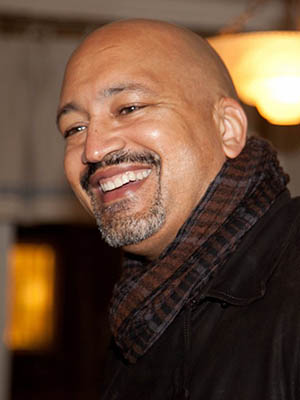 IRJ: You can still hear a few stations that cater to traditional jazz—Charles Mingus, Miles Davis, Thelonious Monk, etc. Why do you think modern jazz—Robert Glasper, Jason Moran, etc.–can’t survive on stations today?
IRJ: You can still hear a few stations that cater to traditional jazz—Charles Mingus, Miles Davis, Thelonious Monk, etc. Why do you think modern jazz—Robert Glasper, Jason Moran, etc.–can’t survive on stations today?
MS: I think if the mainstream stations thought that it would help them increase their target audience, they’d be playing that stuff. But it’s really a specialized format. Unfortunately, many people that love that music don’t really spend a lot of time listening to radio. In their lives, it’s not as much of a priority as it is for someone that’s all about Rihanna or Robert Thicke. I think jazz radio fits a niche audience that’s really interested and they know where to go to find it. They don’t go to radio to do so. But I really think it’s a matter of commerce. If I bought a radio station and I spent some money to do research to see what the format holds in a particular market, if it said that the best opportunity for success would be to play jazz, then I’d take a hard look at it. But, I’m relatively sure in most markets, when they do that research, it does not support making a traditional jazz station happen.
IRJ: Eventually, you started working with Quincy Jones as the A&R for Qwest Records. How did that opportunity come about?
MS: That was a fortuitous and ultimately humorous situation. I was at The Beat and we were doing really well, but gangsta rap was getting a good foothold and I wasn’t really feeling it. The largest driver for me, in terms of my radio career, has always been my love of music. I was getting to a point where the stuff that I liked was losing flavor and the stuff that was coming on didn’t really speak to me personally. So, I was trying to figure out, “Ok. What am I going to do next?” Unbeknownst to me, maybe six months into my time at The Beat, Tevin Campbell put out his first solo album and the Warner Bros. rep told me that Quincy really wanted them to put out Tevin’s version of “Strawberry Letter 23” as a single and I’m like, “That’s a mistake.” So, we started jammin’ “Goodbye” and then a bunch of other urban stations started jammin’ “Goodbye,” essentially forcing Warner Bros. to make that the single. It turned out to be the number one record. Unbeknownst to me, Quincy said, “Well, who the hell is this kid that decided that I picked the wrong single and he wound up picking the right single?” [laughs] So, he followed what I did at The Beat for the next year and a half. I had no idea. Just at the point when I was trying to figure out what I wanted to do next, he called me out of the blue and said, “I’ve been watching you. We need to sit down. We need to talk.” I went up to Quincy’s house and we had a long talk. It was a really good meeting. That night, Quincy called and offered me the job. That was it.
IRJ: What experience(s) did you gather from working with Quincy Jones?
MS: When I worked for him, it was at a point in time when he was more focused on developing his television and film chops. He wasn’t as focused on the music as he had been. He had the “Sally Jesse Raphael Show” and he was getting “Madtv” off the ground. He had the LL Cool J sitcom [“In The House”] and he was working on Vibe magazine. He also wanted to make movies. So, it was hard to get his focus on music at that time, but just in spending time with him, he always had pearls of wisdom. He tended to take a long-term point of view on everything. I remember once there was an artist that he wanted and I didn’t want to sign them, because the artist, I thought, was past the sell by date. He said, “Mike, remember this: Once a hit, always a threat.” Unfortunately, I was right about the artist, but he was right about that idea. If you had a hit once, there’s always potential to have another one. We always point to Tina Turner as a great example of that idea. He just understood that things were cyclical. You couldn’t get too up or down about how anything played out. There were a couple of artists that I wanted to get that we weren’t able to get. He said “I had the first shot at Luther [Vandross], the first shot at Whitney [Houston] and I didn’t get them, but there are always other artists.” He didn’t say it in a disrespectful way, but it was a reality that there’s a lot of talent. If you don’t get talent this time, it won’t be the last time talent will be presented to you.
 IRJ: You weren’t an A&R before working with Quincy. What do you think uniquely qualified you for that job?
IRJ: You weren’t an A&R before working with Quincy. What do you think uniquely qualified you for that job?
MS: I think what qualified me was that I had a good ear. It wasn’t difficult for me to hear hit records. When I was coming up in radio, every program director I ever worked for got to a point where they really couldn’t hear a hit. It would just get past them. For me, it was hip-hop. I could pick hip-hop records that had mass appeal, but hip-hop records that were hip-hop records for the sake of being great hip-hop? I just wasn’t confident in my ability the way I was with urban and pop music. I think that one of the things that attracted Quincy to me was that I didn’t have any formal record experience. I didn’t have the mental prejudices or restrictions about what you can or can’t do, or what you should or shouldn’t say. So, when I dealt with artists or managers, I just shot it to them straight. No sugar coating. I think it was beneficial for me because that wasn’t always the case with other A&R execs.
IRJ: From there you went over to Sony. How did the exit out of Qwest Records begin?
MS: [Laughs] Well, Quincy wound up clearing house. He let everybody go except me and one other guy. Ultimately, I was let go after I finished my Tevin Campbell, Winans, and Keith Washington albums, which was contrary to my understanding, but it was how it was. After that, I went to work for Warner Bros., managing their film archives for a bit. I had a friend that worked at Sony. The DVD format was about 4-5 months old and she and I were having lunch and she was saying that their research was telling them that people would like to see special features added to DVDs. She said, “We don’t have anybody that knows how to deal with talent. You’d be really good at it. Would you be open to it?” And I was like, “Yeah!,” because I know film probably better than I know music. So, I went in as a consultant for a few months. I was a one man DVD added value department. After a few months, we cut a deal and I came on full-time. I built a staff of about 10-11 people. We probably oversaw 4000-5000 different movies in terms of producing documentaries on the making of the film, finding deleted scenes, director’s commentary, all that stuff.
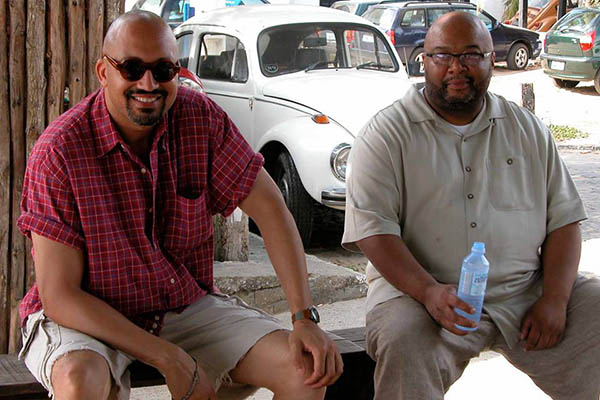 Michael Stradford (left) hanging with radio exec Maxx Myrick
Michael Stradford (left) hanging with radio exec Maxx Myrick
IRJ: What takes up your time now? What drives you?
MS: I’m partners with a couple former Sony colleagues. We’ve got a film distribution company called Big Air Studios. We’ve been spending the last couple of years mounting that and getting ready to unveil before the public, which we’ll be doing in a couple of months. That’s been taking up a lot of my time. The blog I write keeps my writing muscles exercised. Also, I’ve been working on a coffee table book on the fashion of Miles Davis. Esquire named him one of the “50 Best Dressed Men Ever,” GQ has put him in their hall of fame. He was an artist. Whether it was a painting, playing music, or wearing his clothes, it was all an expression of himself. It’s just been a fun project I’ve been working on. I’ve done about 25 interviews, ranging from Quincy to Ron Carter, a bunch of other people that have either played with Miles, worked with Miles, or knew Miles. I talked to 2 of his 3 wives—Frances Davis and Betty Davis. So, it’s been taking up a fair amount of time. But, it’s enjoyable.
IRJ: What types of films will Big Air be distributing? Will you be making movies as well?
MS: Making movies is an ultimate goal. The focus right now though is distribution. We are set up for theatrical releases, but our real strength is the digital arena. We’ve got deals with iTunes, Xbox, Playstation Network, Best Buy, Walmart, Amazon, and Target. We’ve got a DVD distribution deal with Anderson Distribution, so they manufacture and physically place them. The kind of movies we’re looking for are targeting 15-34 year olds.For us, social networking is really important. One of the things we’re doing differently than the studios is we’re trying to be really smart about how we spend our money in terms of marketing and advertising. So, television advertising will be rare, but there will be a lot of online advertising—Twitter, Vine, Facebook. So, when you’ve got either a good genre like action, horror, or comedy and you’ve got a couple names that people are interested in, you’ve got a bit of a hook. Right now, there’s such a transition from how people experience entertainment. Whether it’s going to the movies or watching on television or watching on the phone or the iPad, it’s a challenge. However, it is also an opportunity to be really specific about who you’re talking to and how your message gets across as far as the product.
Michael Stradford has made a living seeing what others cannot. He has already shaped the past and if history does repeat itself, he’ll most certainly be shaping the future. Pay attention and you might learn something.
By Paul Pennington



